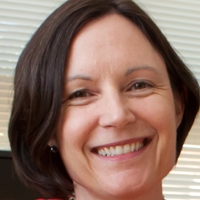
The Future of Work: A Grand Challenge
Work and education cannot stand separately in a world of quickly shifting tasks, roles, and careers. I’ve had the chance to write and speak to audiences about a “mosaic” of education.
We need an on-going mashup of the organizations that need work done, the people doing the work, and the organizations that provide educational opportunities for the workers. Imagine a grand challenge, like those attacking global health and development issues, that creates a world where:
- We are all students and personally engaged with our lifelong learning
- Universities are open, agile, and sustainable
- Organizations partner with education ecosystems to identify short-, medium-, and long-term knowledge, skill, and ability requirements
- Technology tools support the above
As Associate Dean of the Leavey School of Business, I’m thinking these ideas through from a very personal perspective. My thinking is also colored by the arrival of Caryn Beck-Dudley, our new Dean. I asked Dean Beck-Dudley if she might comment on these ideas. I’m thrilled with her perspective:
“The challenge/opportunity for all business schools, including the Leavey School of Business, is how to adapt our pedagogies, processes, and systems to enhance the ability of our students to be successful in the new world of work. This challenge is compounded by over 450 years of educational history where the primary focus has been knowledge transfer. Since most of us were trained and excelled in the traditional higher education model, we need to be extra vigilant in embracing and responding to the disruption that is occurring.”
We aren’t starting from scratch. Many individuals are formally developing their personal brands. (Accounting firm PwC even has an open learning space and toolset to help — great way to build relationships with possible job candidates.) When you pay attention to what you can offer by developing your brand, it seems likely that there is also attention paid to what you could do to improve.
Universities are taking initial steps with shorter, more focused degrees, certificates, and open-enrollment. This provides the opportunity to create “mosaics” of capabilities with finer detail than might be offered by an undergraduate major, or even a major and then a master’s degree.
More employers are evaluating work product rather than degrees. Recruiters are using sophisticated tools to scour coding sites like GitHub for the best contributors — based on the work done, rather than the certification. Next steps can be to feed this information back to the educational ecosystem to keep the learning and working in sync.
I look forward to a day where we use similar sophisticated analytics to evaluate learning activities. For example, the Open Learning Initiative is taking steps to apply research on learning and cognition directly into how courses are designed, presented, and evaluated. Ideally this will become common practice.
What I don’t see yet, and why I make this call for a Grand Challenge, is a trigger that will bring these efforts together.
What I don’t see yet, and why I make this call for a Grand Challenge, is a trigger that will bring these efforts together. Perhaps it will be the talent gap (McKinsey suggests talent undersupply is costing between $800 billion and $1 trillion — even just considering four sectors of the U.S. economy, cited here). Perhaps it will be a “killer app” that creates such vast opportunity we all have to get onboard. Perhaps it will be a grassroots effort that pushes governments, universities, and employers in the right direction.
Until then, let’s each take one step. I’ll improve my courses by leveraging the open learning initiative. What will you do?
Oct 2, 2015

